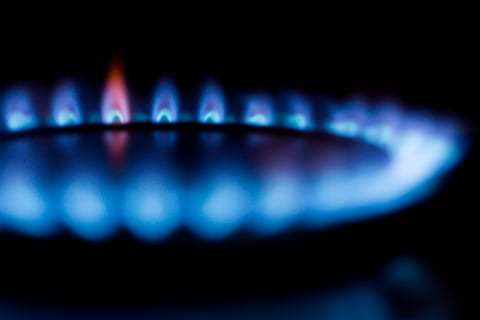UK gas prices have risen dramatically, leaving many energy suppliers bust and our bills ever higher, in a stark demonstration of privatisation’s failures. With prices having increased by 250% since January, many energy suppliers are arguing that they will struggle to cover the increased costs. This has led Ofgem, the energy regulator, to confirm an increase of the energy price cap beginning on October 1st. The price cap will rise by £139 for 11 million Brits on default tariffs, with an increase from £1,138 to $1,277 per year. 4 million more prepaying Brits will face a £153 rise from £1,156 to £1,309.
Not only will the rise in gas prices have customers paying more to their suppliers, but some suppliers have already gone bust as a result. These include People’s Energy, Utility Point, PFP Energy, and MoneyPlus Energy. The UK’s sixth largest supplier, Bulb, is seeking a bailout for their financial troubles. As it stands, Ofgem will ensure that any household set to lose their energy supplier will continue to have their energy provided, taken over by a different supplier.
The conditions for such a troublesome rise in prices have built up over the past year. First a cold winter in Asia at the start of the year saw a rise in the price of Liquified Natural Gas (LNG). Followed by a hot summer in which use of electric-powered cooling rose, the resulting rise in price led to a limited supply in Europe. In Britain, a calm summer saw less wind power being generated, further tightening the availability of energy.
One of the main ways to address these issues is for a country to build up a store of excess gas, typically done in the summer when usage is lower. Britain does have such a store, but while nations such as Germany, Italy, and France have a store of 20% of annual demand, Britain’s is only 6%. This lack of preparation can be attributed to the Conservative government’s belief in the power of the market to solve all our problems. Hence why in 2018, instead of planning ahead, the government decided against building new gas storage facilities on the basis that if there was a need for one, the market would decide and the industry would develop such facilities. This of course did not happen.
The government has also neglected to develop a coherent strategy to move on from the current gas and energy system. There is the option to invest in a hydrogen alternative, or to move instead to mostly electric-powered heating and transport. As of yet there has been no major government investment in either option, with the Conservatives clearly continuing in their stubborn belief that competing private companies will develop the best product for everyone, despite how many times they have been blatantly proven wrong. The Tories argue for these private suppliers, that they give consumers a choice, that competition breeds innovation, but instead encourage a system that cannot withstand challenges like the gas price rise. All but the biggest companies go bust, workers face higher bills, and long-term sustainability is sacrificed entirely for the love of short-term profit.
It is not only energy suppliers struggling in the face of high gas costs, but the suppliers of food-grade carbon dioxide. CF Industries is based in Illinois, and operates two plants in the UK which supply 60% of the country’s food-grade carbon dioxide. This gas is used to extend the shelf-life of goods such as baked, fresh and, chilled food, as well as stunning animals for slaughter. CF Industries has stopped the operation of their two plants due to the price rise, which will seriously disrupt the country’s supply chain. Factor in the current lorry driver shortage, and British supermarkets are set to struggle in filling their shelves. In a statement, British Meat Processors Association CEO Nick Allen said, “This crisis highlights the fact that the British food supply chain is at the mercy of a small number of major fertilizer producers (four or five companies) spread across northern Europe“.
As it stands, winter is set to be a difficult time for many Brits. To face these rising prices as the furlough scheme ends, and universal credit is being cut, could see families having to choose between energy and food. It is important to remember also the thousands of excess deaths from cold homes recorded in previous years, with 8,500 in 2019 alone. The impact of Covid-19 has already proven to worsen conditions, with people at home using up more energy while earning less. So for the cost of energy to rise and financial support to drop, while the country is still dealing with the Tories’ gross mishandling of Coronavirus, provides us a dire outlook for the coming months.
Philip English, is a member of the YCL’s Birmingham Branch



